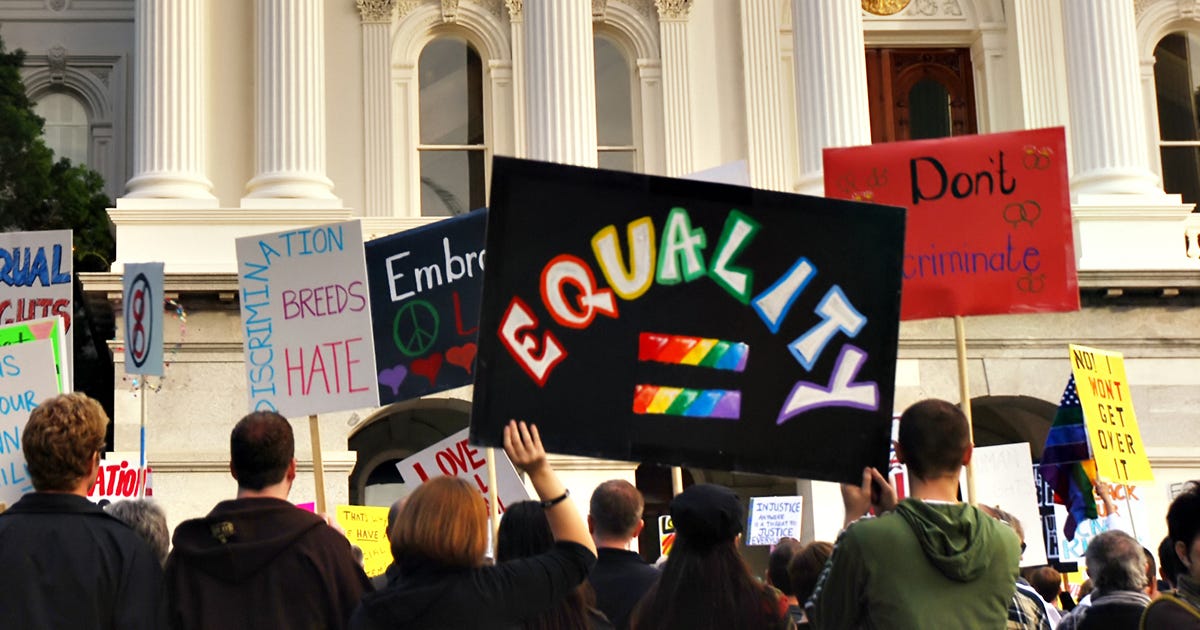A Lifetime of Discrimination Puts Older LGBTQ+ Adults at Risk
Abuse and economic insecurity among older LGBTQ+ persons
In a submission to the UN Independent Expert on the Enjoyment of All Human Rights by Older Persons in April 2021 the International Lesbian, Gay, Bisexual, Trans and Intersex Association (“ILGA World”) noted that older LGBTQ+ people “have had lifelong experiences of discrimination and violence” based on their sexual orientation, gender identity and gender expression, and that as they reach older age “they are both more vulnerable to such abuse, as they may be less able to avoid or negotiate it, and due to older age-related care needs, they may also be in care contexts when they are more likely to be exposed to abuse”.[1] In other words, older LGBTQ+ people are not only at the same higher risk of abuse faced by all older persons but also are subject to risks of abuse that are specific to them because of their LGBTQ+ status.[2] One study conducted in the US among LGBTQ+ adults aged 60 to 88 who attended community-based social and recreational programs or groups found that over 20% of the participants “had experienced physical, emotional, verbal, sexual and financial abuse, and neglect by caregivers” and a quarter of the participants reported that they knew of other older LGBTQ+ adults who had similar experiences.[3]
ILGA World also argued that LGBTQ+ older persons are at greater financial risk, due to being poorer and having fewer financial resources, than their non-LGBTQ+ counterparts due to the cumulative effect of differences over the life course in earnings, employment, and opportunities to build savings, discriminatory access to legal and social programs that traditionally have been established to provide support for aging adults and lack of legal recognition of relationships formed by LGBTQ+ persons that may cause them to live without inheritance and survivor benefits as they get older.[4] For example, a 2021 survey by SAGE found that one-third of older LGBTQ+ adults in the US live at or below 200% of the federal poverty level.[5] Economic insecurity for older LGBTQ+ persons is even greater when other factors, such as gender, race or disability, are also in play, with data showing that poverty is significantly higher among older LGBTQ+ Latinx compared to non-Latinx older adults (67% to 26%) and that lesbian older couples are 10% to 20% less likely than older couples from different sexes to have retirement income or interest and dividend income.[6]
To learn more, download my book on Ageism and Intersectionality: Older Persons as Members of Other Vulnerable Groups.
Notes
[1] Intersections of ageism and age discrimination with cisheteronormativity, homophobia and transphobia, and discrimination based on sexual orientation, gender identity and gender expression (Submission to the Independent Expert on the enjoyment of all human rights by older persons by International Lesbian, Gay Bisexual, Trans and Intersex Association, April 2021), 2.
[2] Id. (citing S. Westwood, “Abuse and older lesbian, gay bisexual, and trans (LGBT) people: a commentary and research agenda”, Journal of Elder Abuse & Neglect, 31 (2019), 97, 100). See also A. Gutterman, Elder Abuse (Oakland CA: Older Persons’ Rights Project, 2023).
[3] A. Grossman et al., “Domestic harm and neglect among lesbian, gay, and bisexual older adults”, 61 Journal of Homosexuality (2014), 1649.
[4] Intersections of ageism and age discrimination with cisheteronormativity, homophobia and transphobia, and discrimination based on sexual orientation, gender identity and gender expression (Submission to the Independent Expert on the enjoyment of all human rights by older persons by International Lesbian, Gay Bisexual, Trans and Intersex Association, April 2021), 2 (citing S. Choi and I. Meyer, LGBT Aging: A Review of Research Findings, Needs, and Policy Implications (Williams Institute, UCLA School of Law 2016), 0 and Facts on LGBT Aging (SAGE and the National Resource Center on LGBT Aging, 2021), 4)).
[5] Id. (citing Facts on LGBT Aging (SAGE and the National Resource Center on LGBT Aging, 2021), 4 (n 6)).
[6] Id. (citing S. Choi et al., Health Disparities of Older Adults in California: The Role of Sexual Identity and Latinx Ethnicity (Williams Institute, UCLA School of Law 2021) and S. Choi and I. Meyer, LGBT Aging: A Review of Research Findings, Needs, and Policy Implications (Williams Institute, UCLA School of Law 2016), 10 (n 5)).




